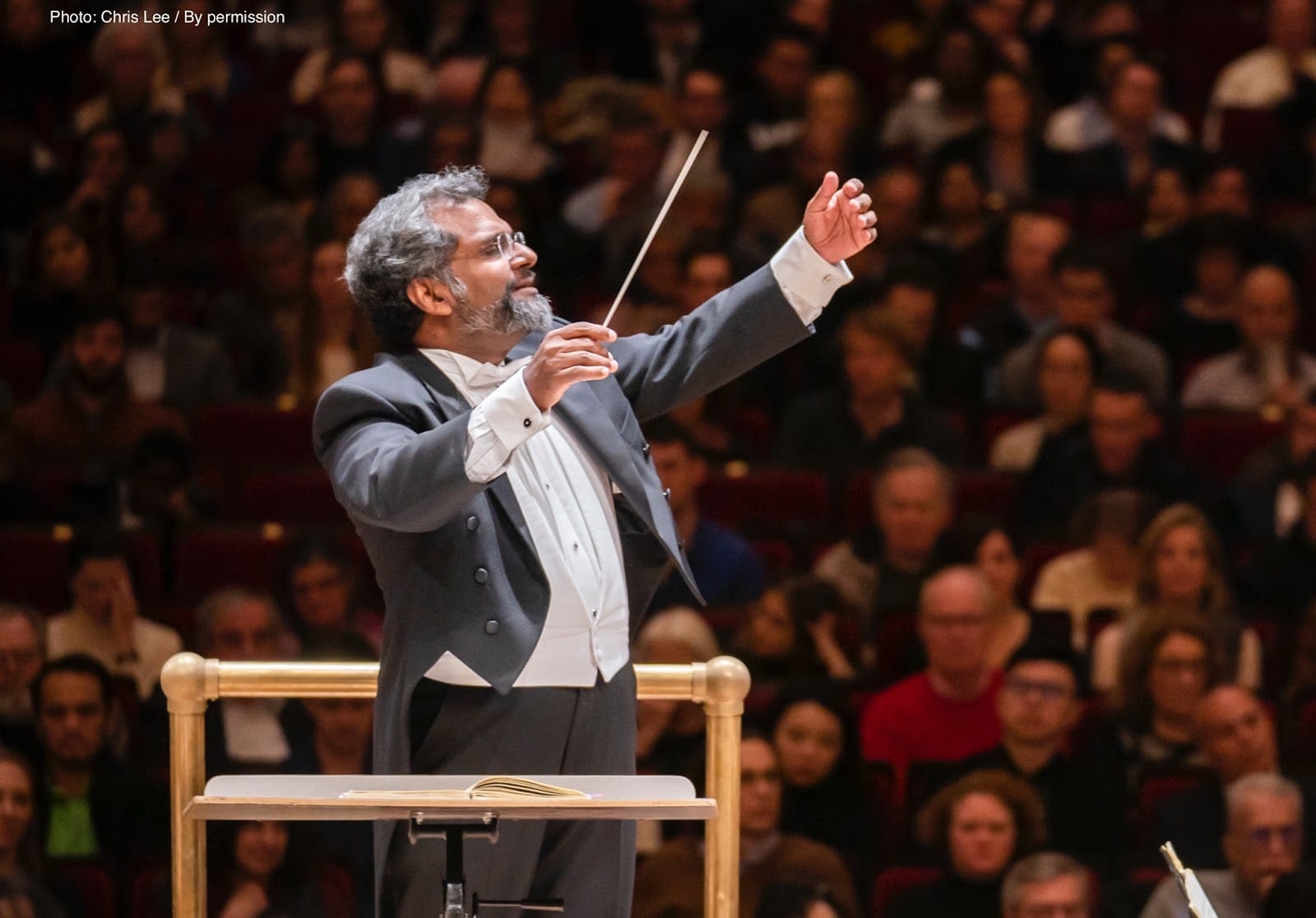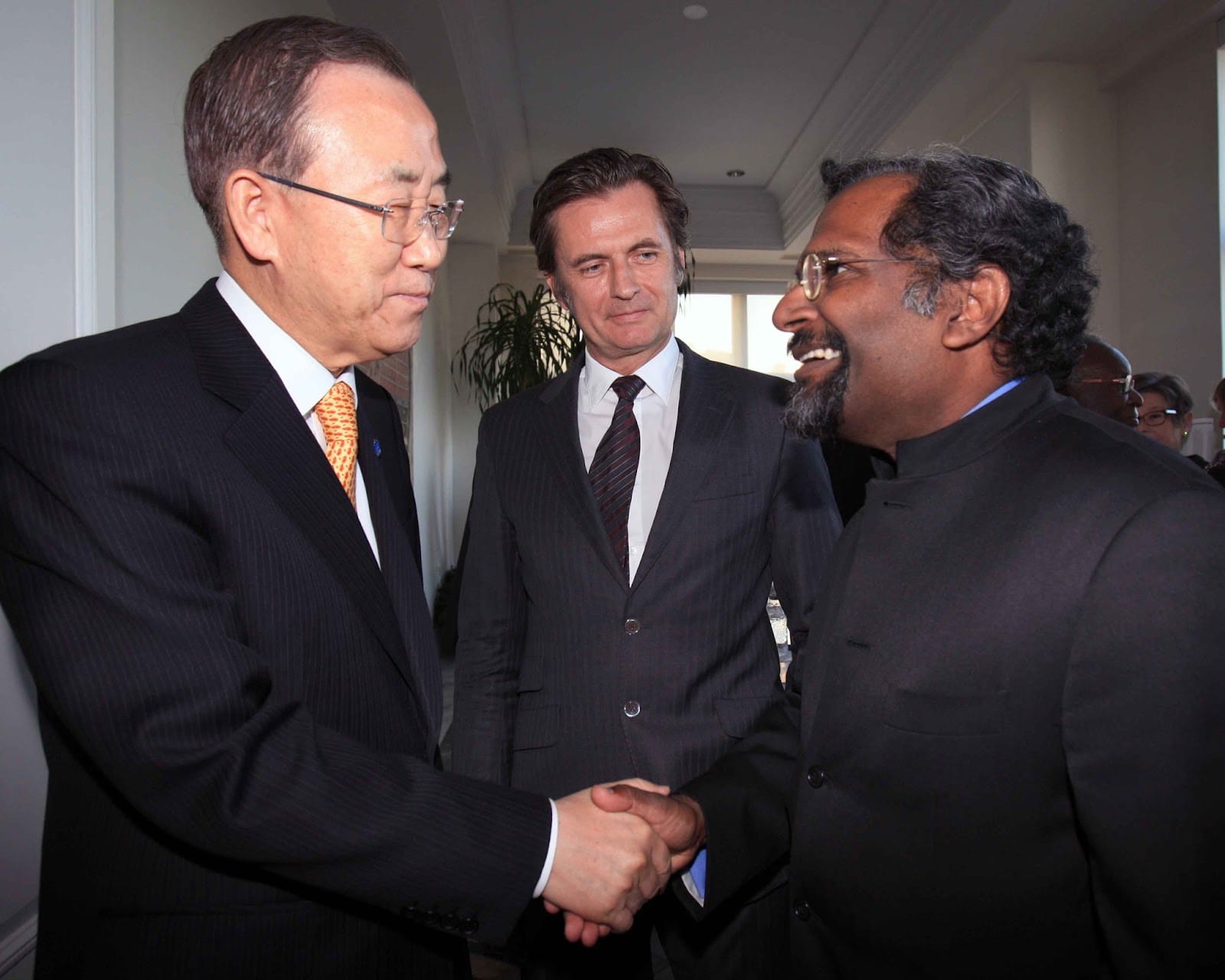Music for Life International’s Journey to Connect & Support Global Communities Through the Arts
George Mathew, the Artistic Director of Music for Life International, joins us for this month’s Stronger Together spotlight. In this article, George explores Music for Life International’s mission, current projects, pivots during COVID-19, and outlook for the future.

For this month’s Stronger Together feature, we’re joined by George Mathew, the Artistic Director of Music for Life International. George incorporated Music for Life International with a group of friends and supporters in October of 2008, following two years of successful global humanitarian concerts at Carnegie Hall in New York.
Today, George joins us to discuss Music for Life International’s mission, current projects, and past achievements.
If you’d prefer to listen to our conversation with George, you can check out our Stronger Together podcast episode.
Can you tell us a bit about Music for Life International and how you got started?
I'm trained as a conductor and pianist. Very early in my professional career, I ran into a situation where there was a humanitarian disaster on the other side of the world, in northern Pakistan. There was a devastating earthquake and it seemed that the word wasn't getting out. So, I reached out to my colleagues in New York and invited them together to do a fundraising concert to put this issue on the world stage (Carnegie Hall) and raise money for the victims of the earthquake.
Very quickly, the message spread. Within a few weeks, 100 musicians and 150 singers came together and presented a concert of Beethoven’s Ninth Symphony to support the work Doctors Without Borders were doing in the field. That concert, put together in a matter of weeks, generated $95,000 in support, after expenses for the cause.
A year later, we assembled a similar concert for victims of genocide in Darfur, Sudan. This concert had 35 orchestras represented by musician participants. After that concert, some of our supporters encouraged us to create a nonprofit organization to facilitate these efforts. That was the birth of Music for Life International.

What inspired you to start Music for Life International?
Music for Life was the name of a legendary concert at Carnegie Hall for HIV/AIDS held 34 years ago by Leonard Bernstein. He was someone I always considered a teacher and inspiration. His ideas echoed very strongly in the beginning of the organization. First, music has the potential to do real work in the world. Second, the best way to learn about something is to approach it from outside itself. The concept of approaching music to shed light on a humanitarian situation far removed from the normal ways we think when considering music, is central to that idea.
After the first concert, we found out the BBC had picked up excerpts and broadcast them internationally. It reached several hundreds of thousands of people in the South and East Asia region, including many people at the site of the disaster. These people drew support and solidarity from the music itself, completely separate from the funds. They actually felt connected to the people doing this on the other side of the world, whom they would never meet. This became an ongoing source of inspiration.
Since then, we have enlarged our mission to support social impact through music. Therein is the heart of the matter. Inside the music is a message — the notes are a metaphor for what we need to do, how we connect to each other, and how we need to address the possibilities of creating communities. Music contains so many layers — if you listen closely, you can find meaning for any situation you're in. It essentially becomes a mirror into ourselves.
How did you adjust to the COVID-19 pandemic?
One of our big areas of activity is these humanitarian concerts. Through sheer luck, we weren't in the middle of a major humanitarian concert project. We, thankfully, weren't hit as hard as many other arts organizations. We were able to continue in our quasi-off-rush hour activity. We continued, conducting fewer public activities, and we were not as badly impacted.
One of the things we started fundraising for is a new grantmaking program, we created for musicians and individual performing artists who were impacted by the pandemic, called the Partners-in-Spirit grant. We've been awarding the grant to organizations and individuals. The first two grants went to the MET Orchestra Musicians, designed to pay their musicians who hadn't received paychecks in over a year. The next grant went to the Musicians Of the Springfield Symphony Orchestra (MOSSO) in Massachusetts. We are considering additional symphony orchestras at the moment.
We feel very fortunate because the musicians in the industry have always come with great generosity to perform for us, donating their artistry and talent. This has been a special opportunity for us to be able to support them.
We also began work on a podcast series, available on the Music for Life International YouTube channel and now we're coming back to hosting in-person concerts. With the United States opening its doors to refugees and displaced individuals, we're planning a music education program for refugees and youth settled in the United States first, then beyond in refugee camps possibly in Jordan and beyond.
What fundraising challenges have you faced and how have you overcome them?
“Challenges” is an interesting term. Our approach has always been to view fundraising as an opportunity, and the process as an asset. I'll preface this by saying, of course, you need funds to carry out your programs. You need funds to disperse to the cause for people working in the field or for those directly impacted.
That being said, we've found fundraising on the grassroots level to be one of the best methods of establishing community. Not everyone is able to come to our events, but there's a community that can experience the music through what we put out.
On one level, we've faced the same challenges and opportunities as most small organizations. Our largest challenge is there's a difference between the perception of our organization and reality. We're a small organization, but we have a large footprint. There's a perception that we have a large organization, but we really don't. We're looking for instruments to amplify fundraising. In that context, we've been so excited to start this conversation with bunny.money.
We've taken this opportunity during the pandemic to explore who has been supporting us and thank them. Surprisingly, the response has been for individuals to turn around and make another donation in return. It's been beautiful to raise money without asking for it.

What does the future hold for Music for Life International?
We created an acronym, nearly ten years ago: HEAL. Humanitarian activity — concerts large and small. Education portfolio — music education for youth and children in at-risk communities. Artistic innovation — our actual activity is different from what happens in the classical music industry, less focused on our survival and more focused on our contribution. Leadership training and community development — we're creating the kind of leadership that orchestras exemplify each day; you don't just lead from the front, you lead from the back of the section or indeed from wherever you are in the community.
We're actually working very hard to generate competition for ourselves by mentoring young artists who might create similar organizations. Our commitment to scaling is a little bit different from the normal paradigm in the social sector. Our very first concert went out to 200 million people. The project we're working on with refugee music education won't just impact those refugees. It will also impact music graduates by providing relevant opportunities they can seize. Once we have several of these programs running, we're looking at engaging a significant percentage of those graduates and not just giving them sustainable jobs, but jobs that will change the lives of those they touch forever.
With millions of refugees across the world, there's an enormous opportunity to impact individuals and communities. We have no shortage of work to do.
What's the best way for individuals to get involved with Music for Life International?
Our website: www.music4lifeinternational.org
Twitter: @music4lifeintl
Facebook: www.facebook.com/music4lifeinternational
And of course, the best way to contact us is simply to email us at info@music4lifeinternational.org
We recently began an internship program where students help us with administrative and music work. There are many ways individuals can get involved and contribute. At the end of the day, our work is about building community through music. That's why we were so attracted to bunny.money who's also dedicated to building community.
Help Nonprofit Organizations with Zero Fees
You can use bunny.money to donate to your favorite nonprofits with 0% fees. None for you and none for Music for Life International — they’ll receive 100% of your donation to support their members. For a limited time, register for bunny.money and you’ll be entered to win money to donate to a charity of your choice.

